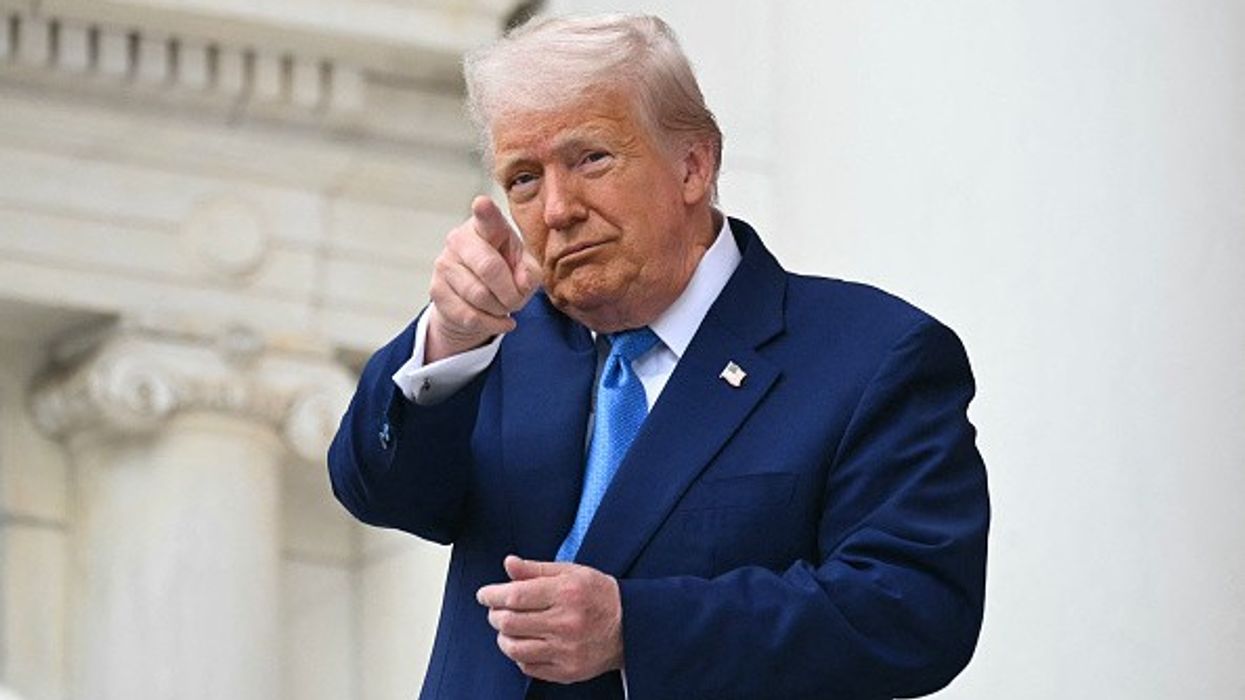PRESIDENT Donald Trump hosted Pakistan’s army chief Field Marshal Asim Munir at the White House on Wednesday, a rare meeting that appeared to deepen disagreement with India over Trump’s recent remarks about mediating the India-Pakistan conflict.
This was the first time a US president hosted Pakistan’s army chief at the White House without senior Pakistani civilian officials. Munir is widely regarded as the most influential figure in Pakistan.
Trump said he was honoured to meet Munir and that they discussed Iran, noting that Pakistan had deep knowledge of the country. He also said he had thanked Munir for helping stop the recent conflict with India. Trump said he had praised prime minister Narendra Modi, with whom he had spoken the night before.
“Two very smart people decided not to keep going with that war; that could have been a nuclear war,” Trump told reporters.
ALSO READ: Modi denies US mediation in India-Pakistan ceasefire
According to a statement from Pakistan’s military, the two discussed trade, economic development, and cryptocurrency. They also exchanged views on the situation between Israel and Iran.
“President Trump expressed keen interest in forging a mutually beneficial trade partnership with Pakistan based on long-term strategic convergence and shared interests,” the army said.
Pakistani officials and analysts had expected Munir to urge Trump not to engage in Israel’s war with Iran and to seek a ceasefire. A section of Pakistan’s embassy in Washington represents Iran’s interests, as Iran and the US do not have diplomatic ties.
Pakistan has criticised Israeli airstrikes against Iran, calling them a violation of international law and a threat to regional stability.
The meeting marked a significant development in US-Pakistan ties, which had seen limited engagement during the administrations of Trump and his predecessor Joe Biden, as both focused on strengthening relations with India.
When asked earlier what he hoped to achieve by meeting Munir, Trump said: “Well, I stopped a war... I love Pakistan. I think Modi is a fantastic man. I spoke to him last night. We’re going to make a trade deal with Modi of India.
“But I stopped the war between Pakistan and India. This man was extremely influential in stopping it from the Pakistan side, Modi from the India side and others,” Trump added. “They were going at it – and they’re both nuclear countries. I got it stopped.”
White House spokeswoman Anna Kelly said Trump hosted Munir after the army chief called for Trump to be nominated for the Nobel Peace Prize for his role in preventing a nuclear conflict between India and Pakistan.
Disagreement over mediation
Trump had said last month that India and Pakistan agreed to a ceasefire following US-led talks, claiming the US urged both sides to focus on trade rather than conflict.
However, Indian foreign secretary Vikram Misri said prime minister Modi told Trump during their recent call that the ceasefire was the result of direct talks between the Indian and Pakistani militaries, not US mediation.
Pakistan has thanked the US for a mediating role, while India has repeatedly rejected any third-party involvement. The call between Modi and Trump on Tuesday was their first since the 7–10 May conflict.
“PM Modi told president Trump clearly that during this period, there was no talk at any stage on subjects like India-US trade deal or US mediation between India and Pakistan,” Misri said.
“Talks for ceasing military action happened directly between India and Pakistan through existing military channels, and on the insistence of Pakistan. prime minister Modi emphasised that India has not accepted mediation in the past and will never do.”
Misri added that Modi and Trump had planned to meet on the sidelines of the G7 summit in Canada, but Trump left early due to developments in the Middle East.
Trump had asked Modi to visit the US on his return from Canada, Misri said, but the Indian leader declined due to a prior schedule.
Tensions over Kashmir
The conflict was triggered by a 22 April attack in Indian Kashmir that killed 26 people. India blamed terrorists backed by Pakistan, a charge Islamabad denies.
Pakistan has said the ceasefire followed a call initiated by the Indian military, which its army returned.
On 7 May, Indian jets targeted what New Delhi described as terrorist infrastructure across the border. This led to four days of strikes involving jets, drones, artillery, and missiles on both sides.
Michael Kugelman of the Asia Pacific Foundation said Trump’s remarks about US involvement in the ceasefire and possible mediation in Kashmir could affect India-US ties.
“For Delhi, it all boils down to an age-old question: How much can it tolerate US-Pakistan cooperation without having it spoil US-India relations — a partnership that’s thrived in recent years despite continued US-Pakistan links,” he said.
(With inputs from agencies)





